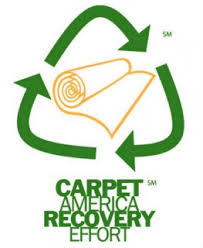 Much to the chagrin of California flooring retailers, differential assessments currently charged on all carpet sold in the Golden State increased on Feb. 1.
Much to the chagrin of California flooring retailers, differential assessments currently charged on all carpet sold in the Golden State increased on Feb. 1.
Following CalRecycle approval, the new amounts are as follows: Broadloom less than 10% post-consumer content (PCC) – $1.05/sq. yd.; broadloom 10% or more PCC, $1.05; carpet tile 10% PCC, $1.40/sq. yd.
California law requires CARE, as the carpet stewardship organization for the state, to implement a differential assessment on each square yard of carpet sold that reflects its cost burden to recycle. CARE’s differential assessment plan is based on two factors: 1) carpet material, as in broadloom vs. tile, and 2) percent of post-consumer content, as in greater than or equal to 10% post-consumer content vs. less than 10% post-consumer content. The new assessment amounts will replace the current amounts.
“We recognize the burden this places on California retailers and their customers,” said Bob Peoples, CARE executive director. “While the California Carpet Stewardship Program has made huge progress in recent years, new demands and rising costs make this increase necessary.”
The factors driving the increase include:
- CalRecycle’s new requirement that CARE build to a six-month operating reserve balance by the end of 2025. This requires the organization to add approximately $13 million in 2025.
- Program growth and success leading to higher costs.
- A new union earmark of up to 8% of revenue annually means a new liability of up to $4 million per year. That equates to about $0.08 per square yard, based on current sales.
- Continuing decline in sales, meaning the base over which to spread the increased costs is shrinking.
- Inflation has contributed but is expected to have a smaller impact in 2025.
Flooring retailers in the state have been preparing for the point-of-purchase changes that will be needed to collect the correct, updated assessment from customers. Carpet mills are responsible for advising retailers on which products qualify in terms of post-consumer content. CARE will continue to supply POP materials as well as training support materials for sales staff.
California consumers pay the assessment when they buy carpet. These monies then support CARE’s efforts, including subsidies paid to recyclers, grants to expand capacity and collection, technical assistance, market development and outreach to increase carpet recycling in California. In 2023, 78% of all expenses were paid out in subsidies to recyclers. Of those funds paid, 75% were paid to recyclers in California.
Retailers respond
The differential assessment is just the latest in a series of taxes that California retailers have to deal with. “The CARE recycle charges continue to get higher every year and they will probably continue in that direction,” said Janice Clifton, owner of Abbey Carpets Unlimited in Napa. “In California most consumers are used to paying all types of recycling charges and, so far, they have not complained when you explain what it is. You actually have to charge it to the customer—that is part of the law, so there is no recourse but to add it to the invoice. There is always a push to add recycling charges to other products such as rugs, hardwood, laminate, etc., but I really hope that legislation does not pass.”
Brett Hemphill, owner of Hemphill’s Rugs & Carpets, Costa Mesa, Calif., likens the assessment to a sales tax; he has to pay processing fees on items that he cannot mark up. “This is becoming a large line item on the consumers’ invoice,” he stated. “I was already getting push back, but this is going to be an issue given the significant increase. Consumers don’t pay anywhere close to these numbers on other items that are recycled such as tires and electronics. I am confident CalRecycle will tax anything they can. They tried to add vinyl plank to the mix last time.”
As a veteran flooring retailer, Phil Meyer of Carpet One Floor & Home, Concord, Calif., said he sees the trend lines developing with the recycling costs, and noted it’s only a matter of time before other products are impacted. “I know the assessment will add to hard surface flooring soon,” he said. “The assessment started as a $0.05 per yard assessment. Now the assessment is going to be $1.05 per yd. (for broadloom). When does it end?”
The post New CalRecycle assessment takes effect appeared first on Floor Covering News.
